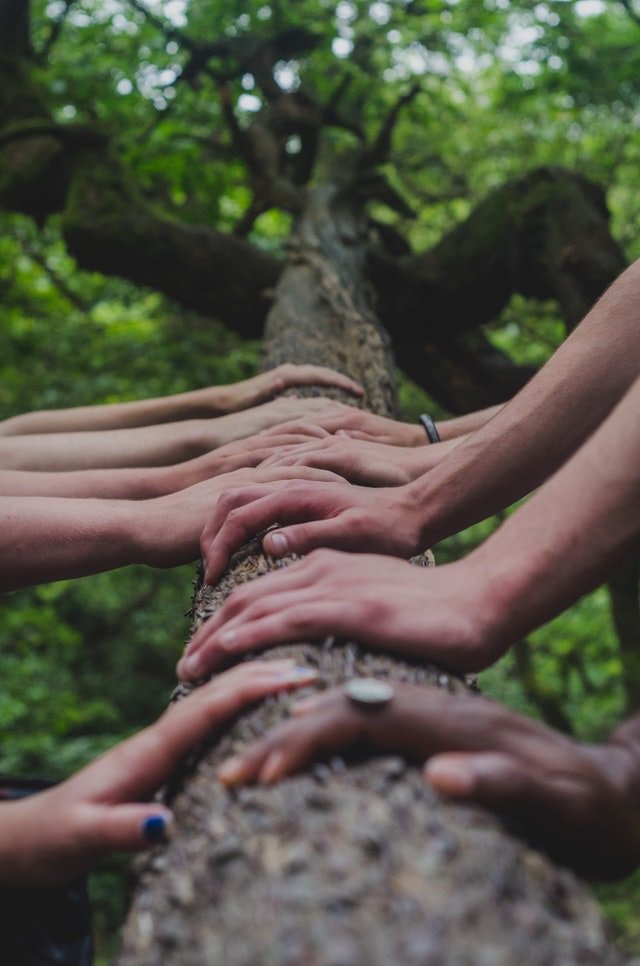Munud i feddwl- Adeiladu Cymuned a chwalu'r rhwystrau

My bedtime reading (or audiobook listening) at the moment is a lecture course called Language Families of the World from the Great Courses. Did you realise that there are 7000 languages and only about 100 are written? That Basque is unique and has no living relatives? And that in the ‘click’ languages, these sounds are consonants in these languages? I have found learning all this fascinating.
Although I vaguely knew that both English and Welsh are Indo-European languages, I hadn’t fully taken on board before what this actually means. This family stretches through Europe into Asia. Originally there was one language, researchers think, either based in Turkey, roughly 7000BCE or Southern Ukraine in 4000BCE. It seems odd to think that I ‘belong’ to such a disparate group of people. So often in our culture, lines are drawn according to race or gender and other obvious visual characteristics. However I share something valuable which completely cuts across these lines. I speak an Indo European language, like people of all kinds of colours and cultures.
In the Church in Wales, one of the strengths of our denomination is our bilingualism. Language shapes how we think and speak, and being bilingual makes us aware of that, whether or not we are skilled in both languages. One language can’t articulate everything. I am often struggling to find the word I want to use but find I am speaking or writing in the ‘wrong’ language for that word. Linguistic structures as well as certain vocabulary is different in English and in Welsh. In fact I am a different person in English and in Welsh. In English I can easily feel wrong footed and insecure. I am speaking my second language after all. It reminds me of the time when I went to a conference, representing the Church in Wales for the first time, and was asked at the reception of the hotel in Copenhagen ‘can you speak in English please?’ I had to say ‘but I am!’ However in Welsh my humour is different, and I am more informal and relaxed.
With identity we often exaggerate our differences. Think of football, where the rivalry between clubs in the same town or city is strong. We imagine that we are very different from those we are closest to, but of course we are not. Our faith teaches us that we should be very wary of walls and divisions. After all, Paul likens us to the body of Christ. You can’t be more connected than that!
So much of what we do at St Padarn’s is about journeying with people as they grapple with their identity and calling. But identity shouldn’t be about excluding but about embracing (see Miroslav Volf’s inspiring book of the same name). The most intense period of vocational exploration is of course the initial training period, where candiates are growing towards a new way of thinking about themselves and their role in the church. However the same is true of the Newly Licensed Ministry phase where ministers are growing from inexperience to leadership, and any form of learning, be it a Masters programme or a day health and safety course, can bring with it a new sense of identity.
Our cultural context is a great gift we have in helping us gain a deep-rooted understanding of our calling and of what it means to be human. We should cherish it. We should also seek to build community where we can. In the letter to the Ephesians we read that Jesus ‘is our peace; in his flesh he has made both groups into one and has broken down the dividing wall, that is, the hostility between us’ and that this is in order we might be built into one body, his church. We are no longer ‘strangers and aliens’ but ‘citizens with the saints.’ (Ephesians 2).
What can I do, what can you do, to build community, and break down (often false) walls today?
Parch Ddr Manon Ceridwen James